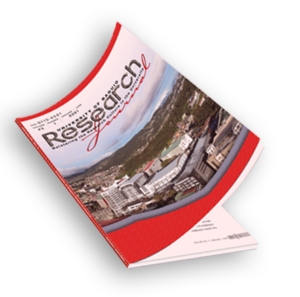
The influence of modular-online distance learning on the academic performance in Filipino among the grade 4 learners
ABSTRACT
This study examined the influence of Modular Online Distance Learning (MODL) on the academic performance of Grade 4 learners in Filipino at the University of Baguio Laboratory Elementary School (UBLES). The aim was to provide valuable information to administrators, teachers, and parents on the advantages and challenges of MODL in the new normal. A descriptive cross-sectional survey design was used on 33 Grade 4 learners from UBLES to gather data on the influence of MODL on academic performance and pupils’ perceptions of MODL. The findings indicated that Grade 4 learners generally agreed on the influence of MODL on their academic performance in Filipino, with a mean of 3.09 and standard deviation of 0.87, indicating that MODL has the potential to influence the academic performance of Grade 4 learners in Filipino. However, there were areas for improvement, such as building self-confidence and teacher guidance. Furthermore, the study found no significant difference in the level of agreement on using MODL in Filipino subject among Grade 4 learners based on section or gender. Moreover, the learners believed they had enough time for tasks, were comfortable with modular distance learning, and preferred answering activities. However, their level of agreement varied when it came to the influence of MODL on their self-confidence and the effectiveness of teacher guidance. Overall, the study provides valuable insights into the benefits of MODL on the academic performance of Grade 4 learners in Filipino at UBLES and can inform administrators, teachers, parents, and future researchers about the advantages and challenges of MODL in the new normal
Authors
Lexter S. Eligio, LPT, M.A.Ed1 and Jemmabel L. Santiago, LPT2
1University of Baguio Laboratory Elementary School
University of Baguio, Baguio City, Philippines
ORCID ID: 0000-0003-0691-8181
Email: [email protected]
Keywords
MODL, academic performance, Grade 4 learnrs, Filipino subject, online distance learning
Issue
University of Baguio Research Journal
Vol. 47, No. 2 | July – December 2023
Published
- February 28, 2024
ISSN Information
(online) ISSN 2945-3321
This work is licensed under
CC BY-NC-ND 4.0

In this issue
Contact Us
- [email protected]
- [email protected]
- (074) 442-3036
- 77 General Luna Road, Baguio City Philippines 2600
